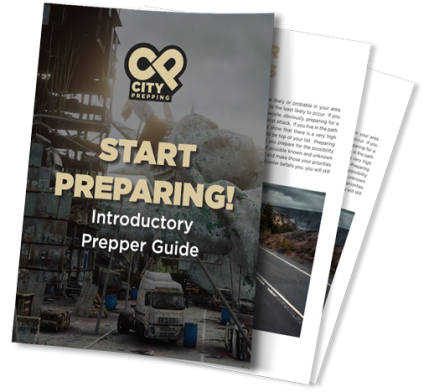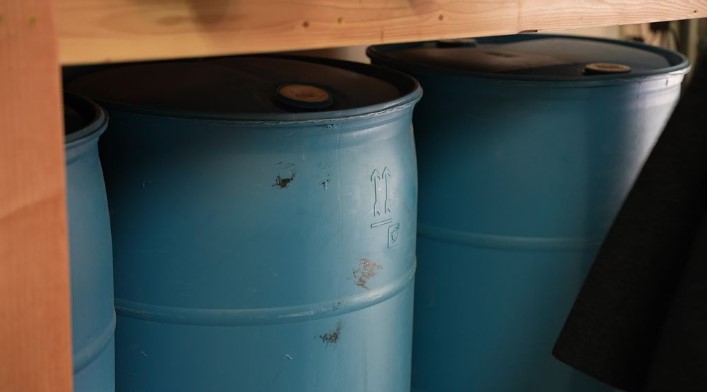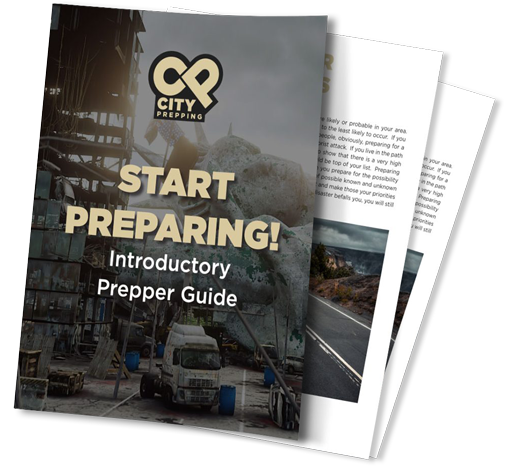In doing research on issues that my viewers want to be aware of, I come across documented information from time to time that even I find, well, to put it mildly, very concerning. One issue that I’ve been following for the last several months is shaping up to impact us in very real and profound ways. As we’ve pointed out several times on the channel over the last few months, this issue is playing out in real-time in front of us, and this summer may be a moment where we will see dramatic shifts. This new data which we’ll discuss momentarily, is another anomaly way out of the normal ranges from recorded data over the last several decades. We may very well be on the cusp of seeing our world change rapidly, and you need to know what to do now to brace for the impact and how to prepare. It’s closer than you think. So let’s jump in.
RECENT OBSERVABLE WORLD CHANGES
 Before I jump in, let me say something really quickly. I realize the discussion of trends related to observable patterns of increased temperatures upset some within this community as they see it as an attempt to push a certain narrative. I do understand your argument, but if you’ve watched my videos for any length of time, you know I purposefully avoid the political element in any discussions and instead focus on what we can observe. What you do with that information is your business. I’ve been in this community for quite some time, and I realize it’s a big tent, and we all prepare for different things. Regardless of our threat assessments and conclusions, we do share the common goal of preparedness. Hopefully, I’ve built enough credibility within this community that you know me enough to know my interest lies in educating and preparing you. So let’s dive into the content.
Before I jump in, let me say something really quickly. I realize the discussion of trends related to observable patterns of increased temperatures upset some within this community as they see it as an attempt to push a certain narrative. I do understand your argument, but if you’ve watched my videos for any length of time, you know I purposefully avoid the political element in any discussions and instead focus on what we can observe. What you do with that information is your business. I’ve been in this community for quite some time, and I realize it’s a big tent, and we all prepare for different things. Regardless of our threat assessments and conclusions, we do share the common goal of preparedness. Hopefully, I’ve built enough credibility within this community that you know me enough to know my interest lies in educating and preparing you. So let’s dive into the content.
Since mid-March 2023, ocean temperatures have soared to unprecedented levels, with the highest average levels observed in 40 years of satellite monitoring. This global phenomenon is triggering disruptive effects across the globe. The Sea of Japan is experiencing temperatures more than 7 degrees Fahrenheit above average, while the Indian monsoon, closely linked to conditions in the Indian Ocean, has been notably weaker than expected. Spain, France, England, and the Scandinavian Peninsula are witnessing significantly reduced rainfall, likely due to an extraordinary marine heat wave in the eastern North Atlantic, where sea surface temperatures have been up to 5 degrees Fahrenheit higher than the average from the coast of Africa all the way to Iceland.
Now it is worth pointing out that on the channel, we’ve recently been discussing the weather pattern shift to an El Nino cycle and what that entails. El Niño, a phenomenon characterized by warm waters in the central and eastern Pacific, is partially responsible for the rising temperatures. The recent absence of La Niña, which has a cooling effect, has also contributed to these recent temperatures. We explain both of these cyclical patterns, plus where we are at between them, as simply as we can in a prior video.
Before you say, “Oh. I have heard this all before,” you may want to take note of newly recorded data. North Atlantic sea surface temperatures are spiking incredibly. We have never seen this before since we started recording this information. As a result, ice levels are plummeting. There’s a term for this. It’s being called a Blue Ocean Event or BOE. You’re gonna hear a lot about this in the coming years. For the first time in human history, virtually all ice will melt from the Arctic seas in the coming decade if we continue along the current trend lines from observable data. According to researchers, a Blue Ocean Event starts once the Arctic sea ice extent falls below 1 million km². When we cross that point is debated, but the trend lines show it’s undeniably a part of our future. The problem, of course, is that snow and ice reflect the sun’s energy. Without it, the oceans get even warmer. This is where we fall into what is called a positive feedback loop. To be honest, even our most prominent and brightest minds can only barely express the true impact this will have on our collective future. One thing that most of them collectively agree on is that the Blue Ocean Event will be a tipping point and a point of no return for us.
Land-based ice sheets are melting as well. Greenland’s ice sheet is also experiencing a record melt percentage. All around the world, we are witnessing this. Long-locked-away glaciers in the Hindu Kush region of the Himalayan mountains are undergoing an alarming rate of melting faster than scientists have been predicting. Our science can’t even keep up with this rapid rate of change. This will result in flooding in those regions, resulting in crops and human life loss.
HOW DO WE KNOW THIS IS BAD?
 To truly wrap our heads around the significance of these unprecedented in our lives rise in temperatures, we have to stretch our understanding far beyond our short under-a-century lifetimes. Even with the collected stories and tales from our ancestors, we can only see back in time a few centuries. The actual recording of temperatures is only slightly longer at 364 years. The oldest continuous temperature record is the Central England Temperature Data Series, which began in 1659. Still, with this limited vision, scientists can extend our understanding of weather patterns for thousands of years. Through studying tree rings, isotopic analysis of ice core samples, sediment core samples, historical records of ancient observers, pollen analysis, and the fossil record, scientists employ multiple indirect techniques to reconstruct past temperatures. Scientists can paint a reasonably accurate image of the overall weather patterns and temperatures from all these.
To truly wrap our heads around the significance of these unprecedented in our lives rise in temperatures, we have to stretch our understanding far beyond our short under-a-century lifetimes. Even with the collected stories and tales from our ancestors, we can only see back in time a few centuries. The actual recording of temperatures is only slightly longer at 364 years. The oldest continuous temperature record is the Central England Temperature Data Series, which began in 1659. Still, with this limited vision, scientists can extend our understanding of weather patterns for thousands of years. Through studying tree rings, isotopic analysis of ice core samples, sediment core samples, historical records of ancient observers, pollen analysis, and the fossil record, scientists employ multiple indirect techniques to reconstruct past temperatures. Scientists can paint a reasonably accurate image of the overall weather patterns and temperatures from all these.
They have done this enough to conclude that humans have been enjoying a Goldilocks zone of temperatures. This Goldilocks period gave rise to civilization, refined agriculture, allowed us to live in previously inhospitable areas, and allowed us to stop roaming the land to obtain the resources we needed to survive. We are not equipped to thrive outside of these stable ranges of temperatures and stay in one place.
THE RESULTS & IMPACT
 Just as we have to go beyond the evidence of our every day to determine the historical weather, we have to go beyond the evidence of just our eyes in our daily lives. When you or someone you know makes comparisons like “the summer of 1979 (or whatever year) was way hotter than this,” they limit their understanding of the predicament we are collectively facing. When people argue the nuances of the causes like greenhouse gasses, solar maximums, or even HAARP, they are trying to link complexly interlaced climate to a single cause or no cause. In its simplest terms, they’re missing the forest for the trees.
Just as we have to go beyond the evidence of our every day to determine the historical weather, we have to go beyond the evidence of just our eyes in our daily lives. When you or someone you know makes comparisons like “the summer of 1979 (or whatever year) was way hotter than this,” they limit their understanding of the predicament we are collectively facing. When people argue the nuances of the causes like greenhouse gasses, solar maximums, or even HAARP, they are trying to link complexly interlaced climate to a single cause or no cause. In its simplest terms, they’re missing the forest for the trees.
The cause as to why this is all happening has become increasingly clear despite the few outlier arguments, and there is very little to any dissent within peer-reviewed data. But the sobering reality is that even with the knowledge we have as to the causes, the will to make significant enough changes in our daily lives to alter the future is, how should I say, not gonna happen. For some listening, this may be dismissive and fatalistic, and some may see me as a doomer. As I always say on this channel, I’m a realist. There’s a future I wish for, but there’s a future I realize is highly probable.
So, here we are. As with most things that drive me to preparedness, I look at not what someone else can do for me but rather what I should be doing to prepare my family. Like it or not, these dramatic shifts in temperature will bring about some pretty disastrous outcomes.
WHAT YOU SHOULD DO NOW
 The ability to just go about our daily lives like Goldilocks wandering through a house is rapidly ending. Our ability to science up a solution to a global problem is also outpacing our capabilities. Let’s face it, most of us aren’t in a position to simply pull up stakes and head to a more temperature and weather-stable zone. Taking all that into account, there are things you can do, steps you can take right now, to brace for the impact of these changes and live through them. I may sound like a broken record sometimes, but it comes down to food, water, and shelter.
The ability to just go about our daily lives like Goldilocks wandering through a house is rapidly ending. Our ability to science up a solution to a global problem is also outpacing our capabilities. Let’s face it, most of us aren’t in a position to simply pull up stakes and head to a more temperature and weather-stable zone. Taking all that into account, there are things you can do, steps you can take right now, to brace for the impact of these changes and live through them. I may sound like a broken record sometimes, but it comes down to food, water, and shelter.
FOOD
 I say it a lot on this channel, but you must start growing your foods, at least at some level. That can be sprouts and microgreens, a windowsill garden, a full outdoor garden, or chickens, rabbits, or goats, but you have to learn how to produce at least some of what you eat and free yourself from dependence on a collapsing food production and distribution system. You also need to diversify your eating and cooking strategies. As I mentioned earlier, there may be a time when wheat harvests may significantly decline. Can you pivot to other grains to make your daily bread when you are priced out of the market? When commercial businesses lack the ingredients to serve you the buns for your burgers or the bread for your sandwiches, what are your other options?
I say it a lot on this channel, but you must start growing your foods, at least at some level. That can be sprouts and microgreens, a windowsill garden, a full outdoor garden, or chickens, rabbits, or goats, but you have to learn how to produce at least some of what you eat and free yourself from dependence on a collapsing food production and distribution system. You also need to diversify your eating and cooking strategies. As I mentioned earlier, there may be a time when wheat harvests may significantly decline. Can you pivot to other grains to make your daily bread when you are priced out of the market? When commercial businesses lack the ingredients to serve you the buns for your burgers or the bread for your sandwiches, what are your other options?
Food instability and insecurity will be the most visible result of these recent dramatic shifts in weather. Watch for crops to fail and world hunger to increase. We face some serious challenges, so you should have a three-pronged approach to your food security: set aside, adapt to new foods, and grow something. Believe me, when it comes to something like gardening, there are many failures along the way as you learn what to do.
WATER
 Water is also something where you will want a personal supply to get you through periods of interrupted flow. If in a drought, low levels can lead to algae flare-ups that may result in boil notices. Droughts can also result in dwindling supply. When it does rain in massive downpours after a long drought, much of that doesn’t absorb into the ground but results in flooding and overflowing sewer and drainage systems.
Water is also something where you will want a personal supply to get you through periods of interrupted flow. If in a drought, low levels can lead to algae flare-ups that may result in boil notices. Droughts can also result in dwindling supply. When it does rain in massive downpours after a long drought, much of that doesn’t absorb into the ground but results in flooding and overflowing sewer and drainage systems.
Beyond just the water you have set aside, do you have the means to treat and purify raw water sources into drinkable water? The CDC estimates there are up to 32 million cases of acute gastrointestinal illnesses per year in the United States from public drinking water systems, and that’s with everything running what we would call smoothly. Imagine how that can change after an extreme weather event or two.
SHELTER
 Finally, I have to say shelter is a consideration. If you do just three things in response to these shocking weather and oceanic temperature observations, food, water, and shelter should be those things. When it comes to shelter, ask yourself how dependent you are on modern amenities to maintain a livable environment. If you live in an area that is pushing triple-digit temperatures or below-zero temperatures more and more days every year, you’re going to have a problem very soon. If you live in an area that is seeing more and more atmospheric rivers of rain punctuating long periods of drought, you will have a problem soon.
Finally, I have to say shelter is a consideration. If you do just three things in response to these shocking weather and oceanic temperature observations, food, water, and shelter should be those things. When it comes to shelter, ask yourself how dependent you are on modern amenities to maintain a livable environment. If you live in an area that is pushing triple-digit temperatures or below-zero temperatures more and more days every year, you’re going to have a problem very soon. If you live in an area that is seeing more and more atmospheric rivers of rain punctuating long periods of drought, you will have a problem soon.
If you rely on air conditioning or heating to stay alive some days, ask yourself what you will do if these services fail. If your area is prone to violent storms, excessive rain, or high winds, how are your shelter and the surrounding area equipped to cope with that, especially if it becomes more of the norm? Should you be clearing gutters, trimming branches, setting up a precipitation collection system, building a storm shelter, or planning evacuation routes?
When it comes to shelter, I mean the space you live in, the area around that space, and the region you live in. These observable readings will eventually lead to forced migrations of people. Maybe that will just impact you indirectly, or maybe that will be you, but it’s part of our shared future.
Look, I’m not interested in debating causes. I know the comment section is going to be filled with various views on this issue, and I take no issue with that at all. I’ve laid out reasons that can be observed, and they point to a clear conclusion. When I look at the recent observable data out there and make my own comparisons to previous data and records, I cannot deny the changes that are upon us. We’re already in the early stages of the impact that this will have on us, and the coming years will be more difficult. That will result in a struggle for many, so I am more interested in the solutions I can plug in today to survive an increasingly unstable future. I hope you are too.
What are your thoughts? Are you concerned about any of this? Let me know your thoughts in the comment section below.
As always, stay safe out there.









